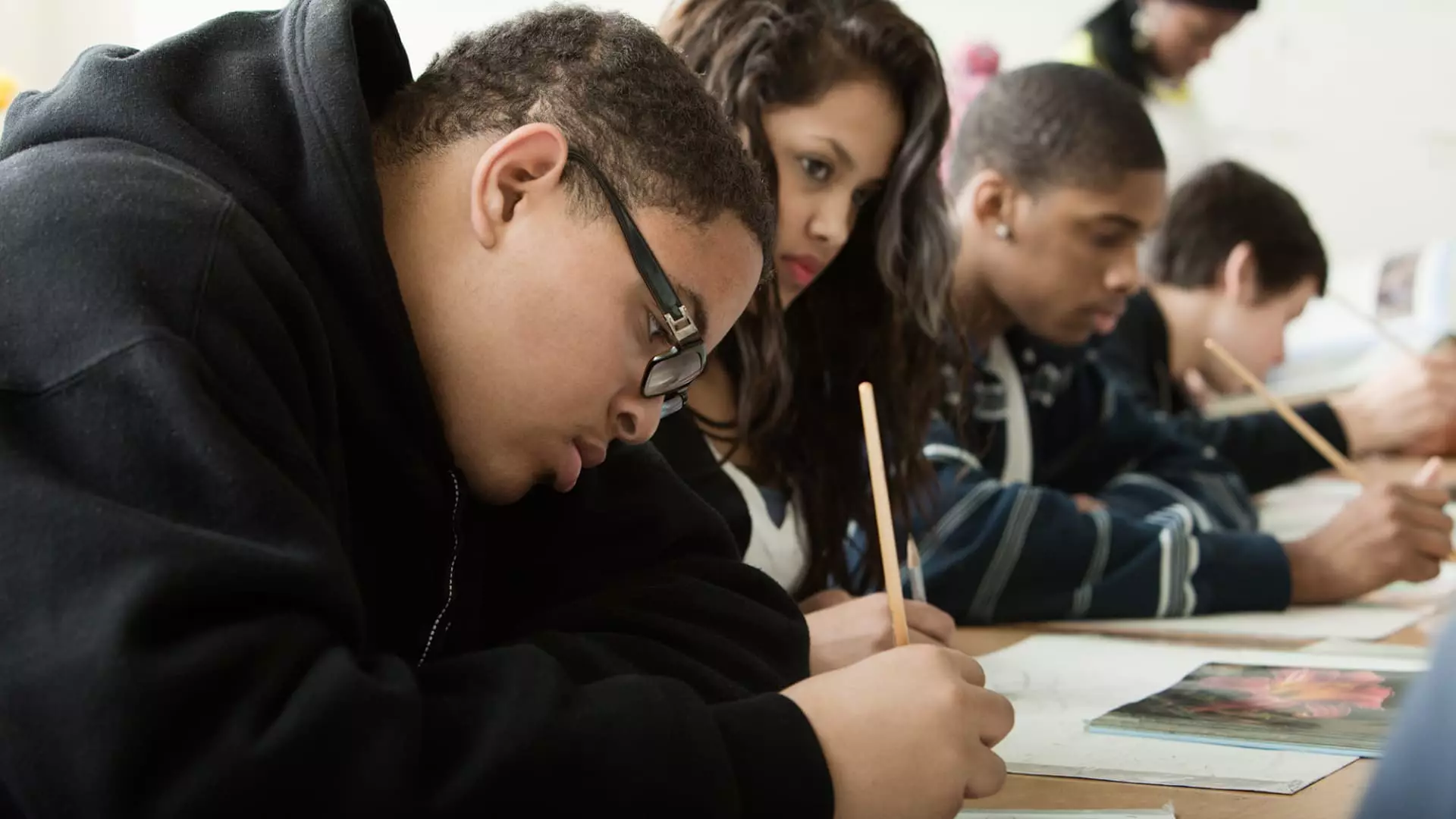Keith Harris, a 17-year-old senior at KIPP DC College Preparatory, represents the emerging wave of students who are acquiring vital financial skills before even stepping onto a college campus. Enrolled in the NAF Academy of Business, Harris is experiencing a comprehensive financial education that encompasses lessons in accounting, investing, and budgeting. Unlike the cursory financial literacy classes that many high school students encounter, this three-year program not only delves into academic aspects but also provides practical, work-based learning opportunities. Harris’s ability to save and invest part of his income from a part-time job is a clear indicator of how these teachings lay foundational skills that benefit both the individual and the community.
As students like Harris navigate this rigorous curricular landscape, they are not merely ticking boxes on a list of graduation requirements; they are cultivating an understanding of financial management that many in their demographic often lack. This program, which requires students to engage with a variety of critical financial concepts, is crucial in fostering informed citizens who are capable of making educated financial decisions.
The significance of a structured financial education cannot be overstated. With over 160 students participating in the KIPP DC program, the initiative stands out against a backdrop of fragmented financial education offerings across the country. Students immerse themselves in essential topics such as budgeting, saving, investing, and risk management, actively preparing for their futures. Additionally, the NAFTrack certification that some students earn serves as a credential signifying their preparedness for both college and career, illuminating pathways that may otherwise remain obscured for young individuals in underserved communities.
Furthermore, the collaboration with Georgetown University’s McDonough School of Business and local internship opportunities with reputable employers showcases the program’s commitment to experiential learning. These connections not only enhance theoretical understanding but also provide students with invaluable real-world experience, amplifying the program’s impact on their education and career prospects.
The KIPP Foundation’s mission to “break cycles of poverty” speaks volumes about the program’s intent and significance. Shavar Jeffries, the CEO of the foundation, emphasizes that economic security is paramount for students who often face financial uncertainty. By integrating rigorous financial education into the high school curriculum, the foundation seeks to equip students not just with knowledge, but with actionable skills they can carry into adulthood. Harris’s ability to converse about investments and savings with his family illustrates the ripple effect of financial education, empowering not just the student but potentially their entire household.
Similarly, senior Donyae Vaughan echoes this sentiment, expressing gratitude for the financial lessons she has garnered alongside her academic journey. From securing an internship at a consulting firm to discussing investment strategies with her mother, Vaughan embodies the transformational potential of financial literacy education. Her experience is a powerful testament to how targeted education can enhance familial discussions around financial matters, fostering a culture of savings and investment that can transcend generations.
As the landscape of financial literacy in schools evolves, ongoing research highlights the necessity for state-level mandates concerning financial education. While nearly half of U.S. states are either requiring or considering requirements for high school financial literacy courses, the current state of implementation varies widely. Many students, particularly those from disadvantaged backgrounds, often miss out on essential financial education due to the lack of resources in their schools. As noted by Raven Newberry, managing director at the National Endowment for Financial Education, requirements at the state level can help close existing disparities.
A wealth of studies consistently demonstrates that financial literacy correlates strongly with improved financial well-being later in life. Young adults who have completed financial literacy courses are significantly more likely to utilize lower-cost loans when funding their education and manage their finances effectively without falling prey to high-interest credit options. This correlation becomes increasingly important as we witness a generation grappling with student debt and financial uncertainty, underscoring the urgent need for schools, particularly those serving lower-income populations, to prioritize financial education.
As society progresses, the importance of financial literacy in education cannot be overstated. Programs such as those at KIPP DC College Preparatory serve as models for how schools can impart essential financial knowledge that not only benefits students academically but empowers them to make informed decisions that will affect their lives profoundly. The capacity to understand investing, saving, and budgeting equips young people with tools that will enable them to navigate future economic challenges successfully.
Looking ahead, as educational institutions and policymakers recognize the profound implications that financial education can have on future generations, we may one day see a landscape where all students, regardless of background, receive an education that comprehensively prepares them for the financial realities of adulthood. In essence, the journey toward financial literacy is a critical investment in the fabric of our society—one that promises to yield lasting benefits for individuals and communities alike.

